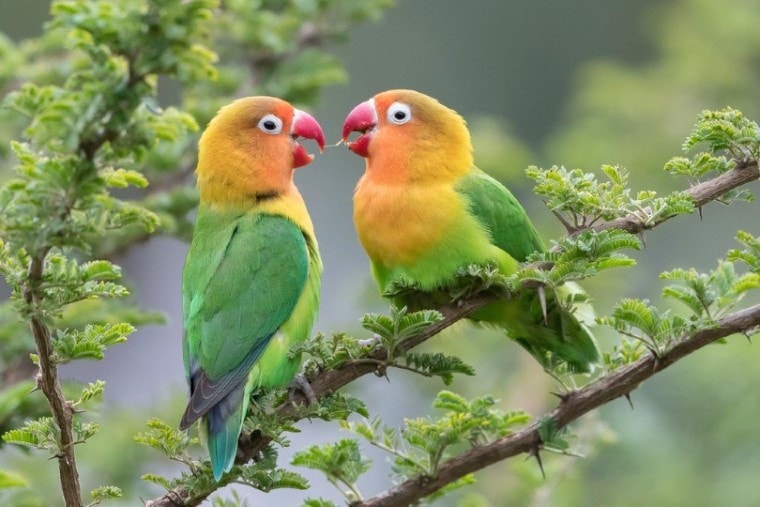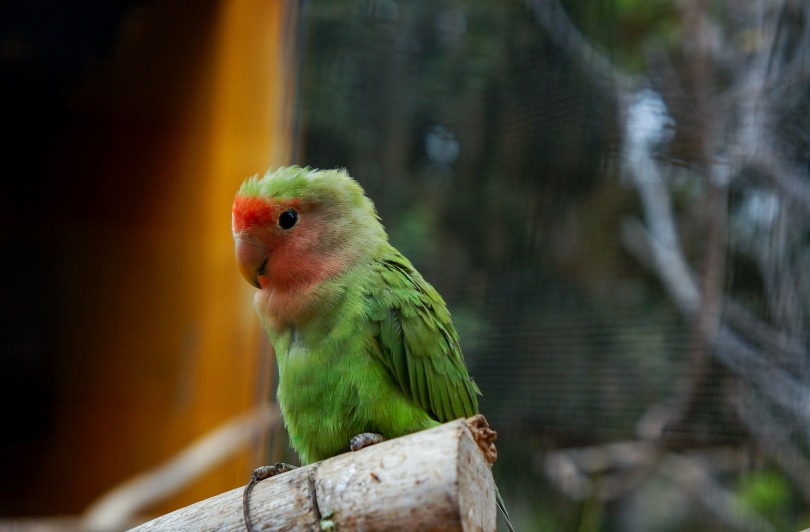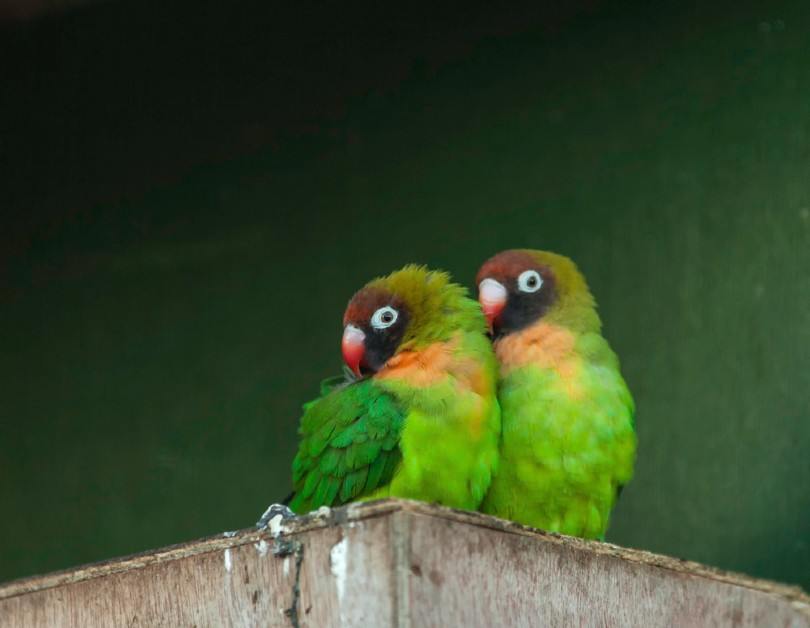
We all know that bird poop is a little—well—messy. No matter what, all birds combine their urine and feces, releasing them at the same time. But what happens when it’s suspiciously runny? What exactly does diarrhea look like in lovebirds?
Diarrhea is actually an infrequent phenomenon in lovebirds. When it comes to your lovebirds’ excrements, chances are much more likely that it’s just a little watery and nothing more. But let’s explore what causes diarrhea, how to tell the difference, and how to prevent it entirely.
 Healthy Poop in Lovebirds
Healthy Poop in Lovebirds
When birds eliminate waste, both urine and feces are combined. Thus, it is entirely normal for all bird stool to be loose and watery—differing from other mammals. Even still, lovebirds can have diarrhea just like anything or anyone else.
Diarrhea in Lovebirds: What to Look For

If your bird is actually experiencing diarrhea bouts, you can look for these accompanying factors:
The 5 Reasons Your Lovebird Could Have Diarrhea
This is not an exhaustive list of reasons why your bird might be experiencing diarrhea. However, these are the most common reasons so you can act appropriately.
1. Stress

Just like us, our beloved birds can experience high-stress situations. And when they do, their bodies react accordingly. If you notice other signs that might point to stress, it could be a direct cause of diarrhea.
Other signs of stress include:
2. Poor Diet
If your lovebird is eating incorrectly or overeating certain food items, it can cause diarrhea. Typically, it’s something watery and acidic, like fruit.
3. Parasites

If your lovebird has parasites in its system, this can cause diarrhea after some time. Usually, other signs of parasites include:
4. Organ Issues
Only your veterinarian can determine whether your lovebird has any problems with its internal organs. But sometimes, diarrhea can point to a direct issue with the liver or kidneys.
5. Consuming Pesticides

There is a reason that we are taught to wash our fruits and vegetables. Many of these items contain very harmful pesticides that are invisible to the naked eye. If you have been feeding your lovebird non-organic garden matter, it could be upsetting their gastrointestinal tract.
 Final Thoughts
Final Thoughts
The bottom line is that it’s essential to make sure that your lovebird is safe and healthy. If they have any changes in potty habits, it’s important to contact your veterinarian to make sure that everything is okay.
Sometimes it might just be something they ate, and all will go back to normal in no time. But it is best to double-check to make sure you’re not missing a more significant issue.
Related Read:
Featured Image Credit by: Ward Poppe, Shutterstock

 Healthy Poop in Lovebirds
Healthy Poop in Lovebirds





